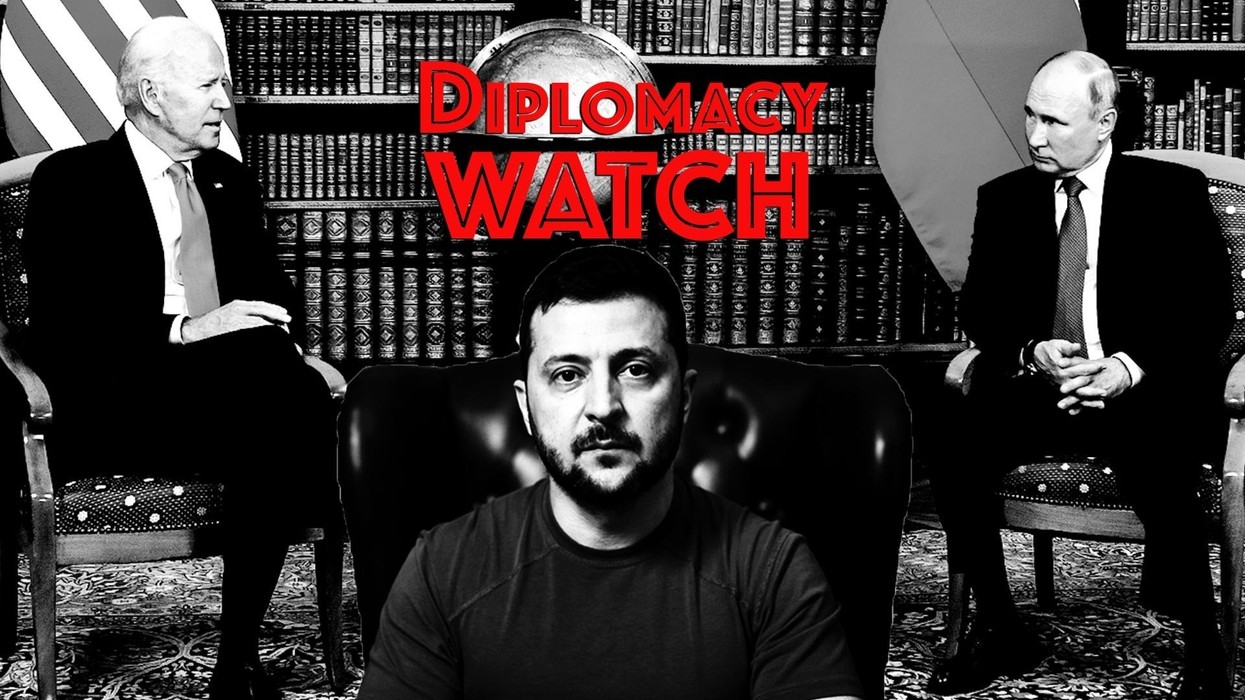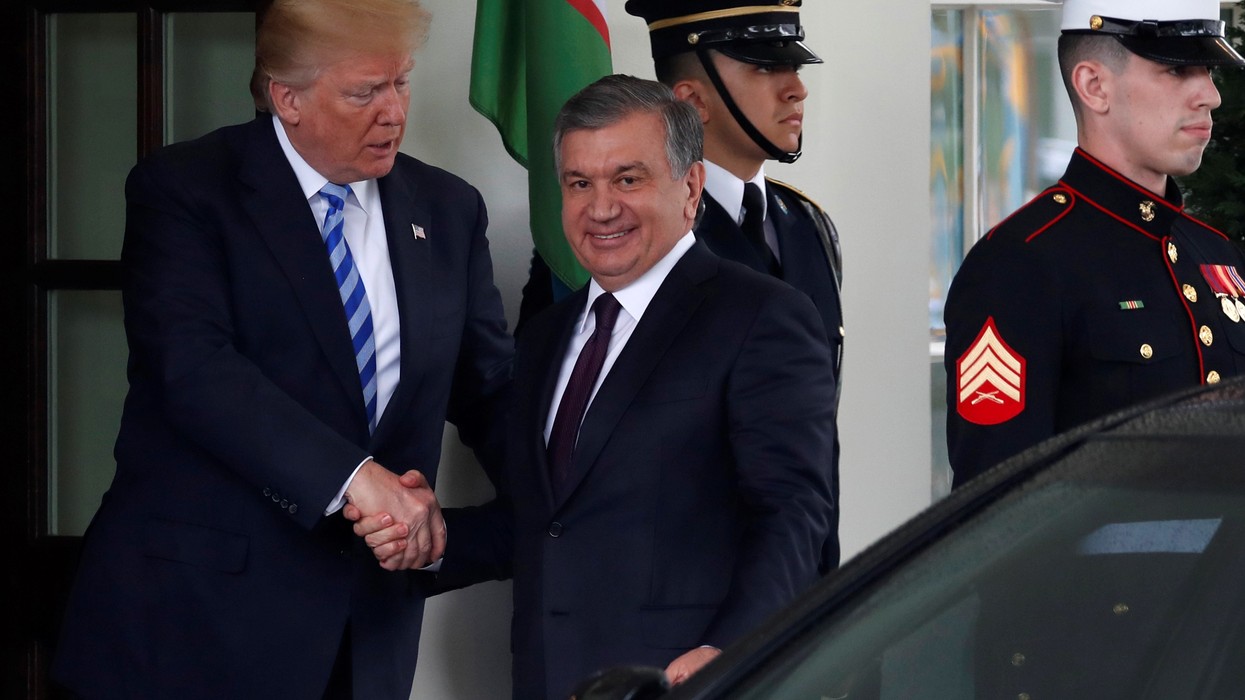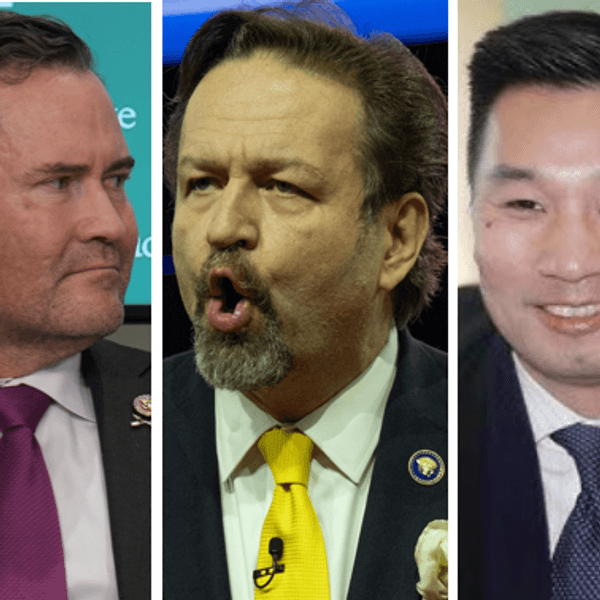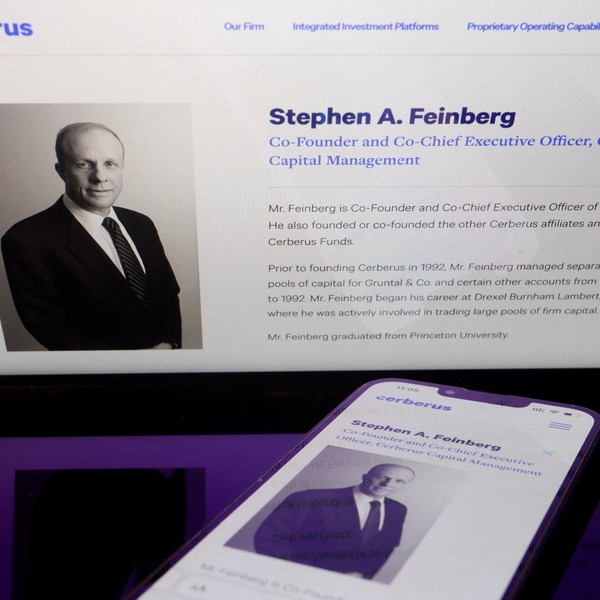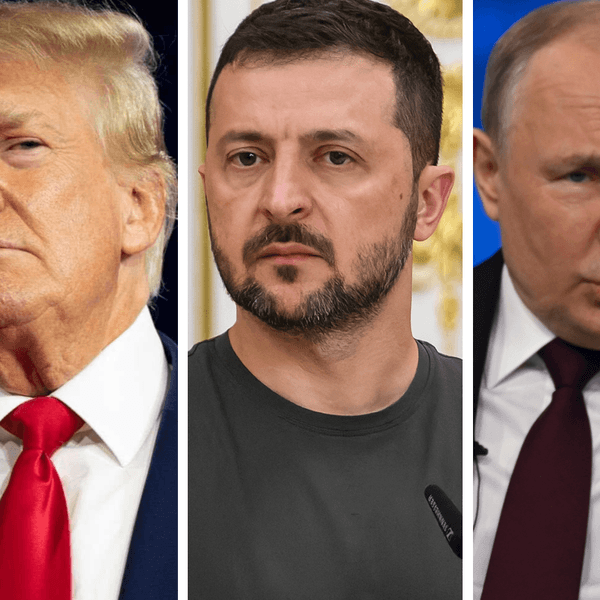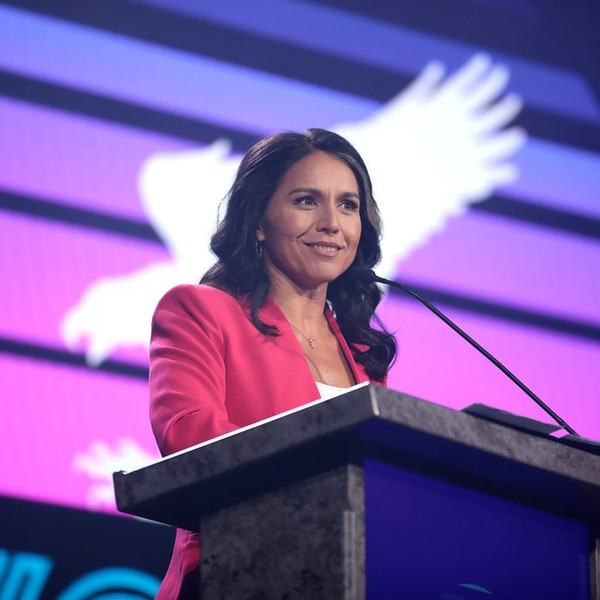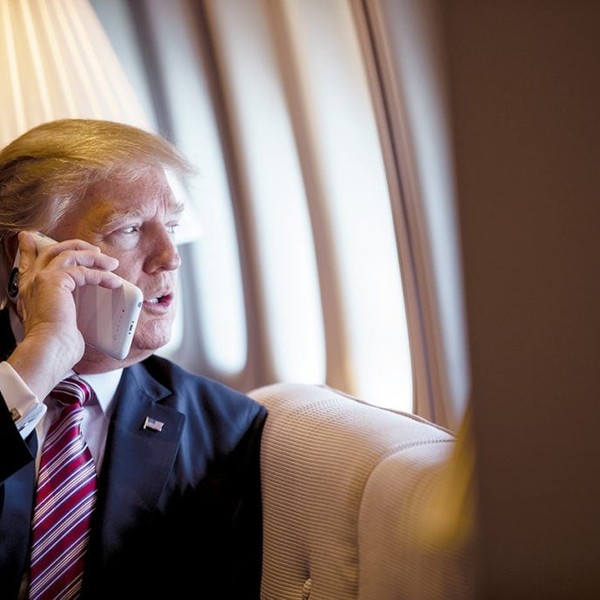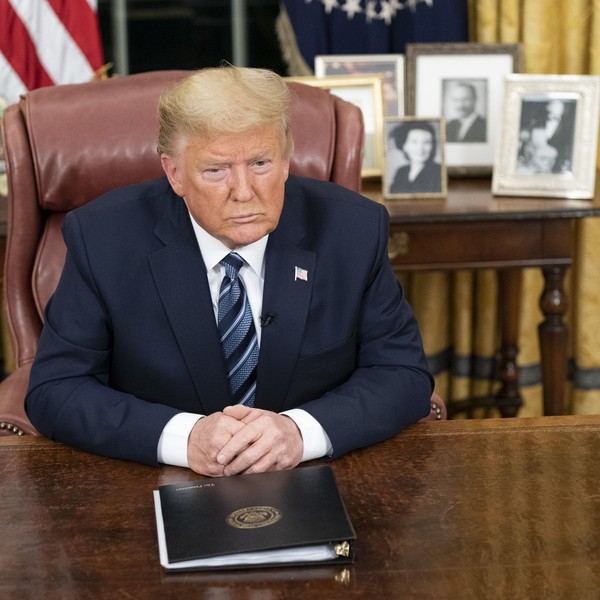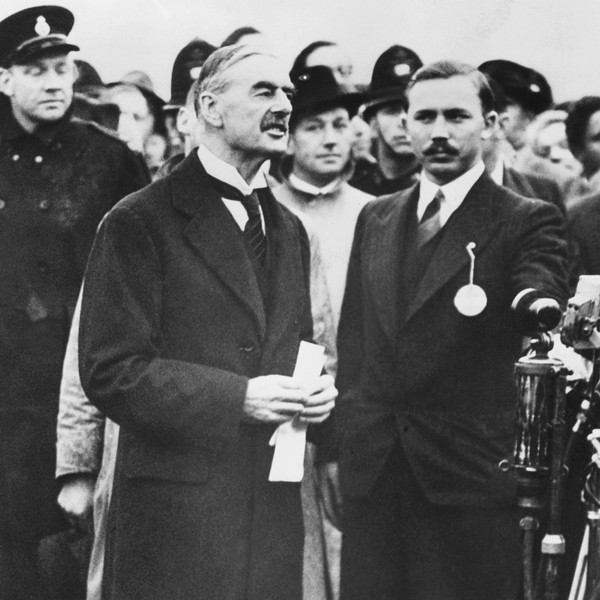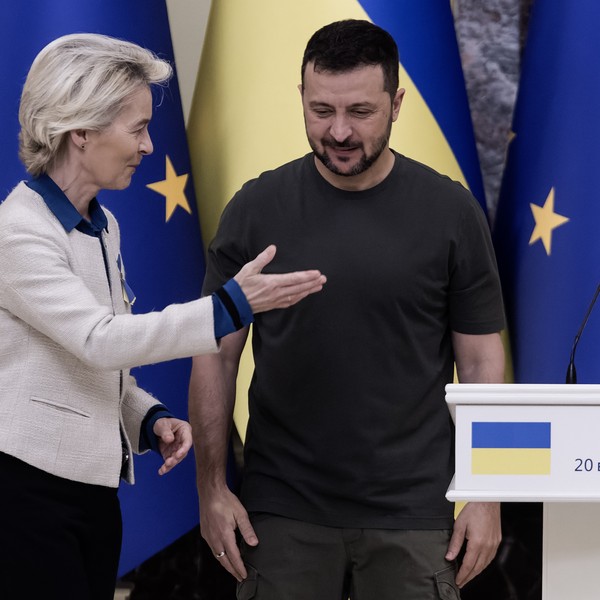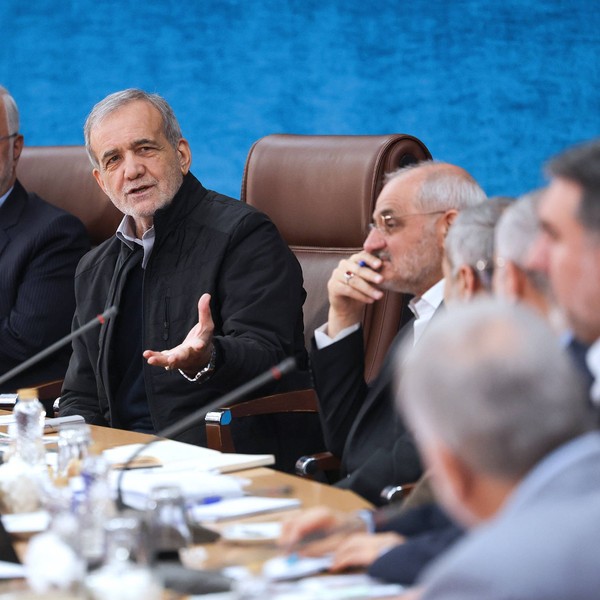Nikki Haley will reportedly announce the start of her campaign for the Republican presidential nomination on February 15, becoming the first GOP 2024 candidate after Donald Trump. Since it’s likely that Haley will emphasize foreign policy issues in pitching her candidacy, it’s worth examining her public record more closely to see what kind of foreign policy she thinks the U.S. should pursue.
There is no question that Haley is a long-shot contender for the nomination. Trump’s decision to seek renomination after his 2020 defeat has created an unusual situation for other potential candidates as they are faced with the prospect of having to compete with a former president. But as a former governor of South Carolina and ambassador to the United Nations under Trump, her presidential ambitions have been no secret — one of the main reasons why she went to work for Trump in 2017 was to further those ambitions.
Once hailed as one of the future leaders of the party, Haley is one of those Republican “rising stars” that hasn’t risen very far yet. Her 2016 endorsement of Marco Rubio ahead of the South Carolina primary was supposed to represent the dawn of a “new” Republican Party, but it turned out that Haley’s endorsement didn’t count for much in her home state. Now Haley is arguably too close to Trump to please his opponents, but she is also not enough of a loyalist to satisfy his core supporters. In trying to have things both ways for years, repeatedly switching between embracing and criticizing Trump, Haley has left herself with no obvious base of support. Like Marco Rubio, Haley will probably have a much bigger cheering section among hawkish policy intellectuals than she will among primary voters.
Like most former governors, Haley has relatively little foreign policy experience. Prior to her stint as U.N. ambassador, she was not involved in major foreign policy debates. Trump initially asked Haley to be secretary of state in his first term, but she declined the offer citing her lack of experience. Unlike her potential rival for the nomination, Florida Gov. Ron DeSantis, Haley has not served in Congress and doesn’t have a voting record that voters could use to assess her judgment on foreign policy issues. Despite that, Haley has said enough publicly about her views while in government and in the years since then that we can get a clear picture of what she believes.
To the extent that there is a fight among Republicans over the direction of their party’s foreign policy, Haley is squarely in the camp of the hawkish internationalists that have dominated the GOP’s policymaking apparatus for decades. This made her a reliable defender of some of Trump’s most aggressive moves when she worked in the administration, but it will also likely alienate many Republicans that have become more skeptical about the wisdom and necessity of foreign interventions. If Haley managed to become the nominee, she would be something of a throwback to the pre-Trump Republican Party. Jacob Heilbrunn recently argued that “Haley represents the Republican old guard, at least when it comes to foreign policy,” and that seems right.
While she was representing the U.S. at the United Nations, Haley sometimes seemed to be running her own foreign policy alongside the one coming out of the State Department. As a result, her relationship with then-Secretary of State Rex Tillerson was reportedly a contentious one. She tried to use her position in New York to build up her credentials as a foreign policy hawk, and she wasn’t interested in coordinating with Foggy Bottom. Despite the diplomatic position she held, she was not very diplomatic. She preferred lecturing, making demands, and talking about “taking names” of countries that failed to endorse U.S. proposals.
While she excoriated certain pariah regimes for their human rights abuses, U.S. allies and partners were always spared from the same treatment. Consistent with Trump’s preferences, the U.S. withdrew from several U.N. bodies and international agreements while Haley was in the administration, and according to her own account, she had no problem with any of these decisions. Haley was an enthusiastic supporter of the decision to quit the U.N. Human Rights Council, which had the effect of ceding influence to all the most abusive states. Haley is hardly the first ambassador to the U.N. to engage in selective human rights criticism, but in her case the double standard on display was even more noticeable than usual.
Haley’s legacy from her time in the Trump administration was mostly one of advancing hardline policies. She was particularly proud of her role in securing more sanctions on North Korea at the start of the Trump administration’s “maximum pressure” campaign. She was also one of the leading opponents of the nuclear deal with Iran inside the administration at the time. First she pushed for Trump not to certify Iranian compliance and falsely claimed that there was proof that Iran was violating the deal, and then she supported reneging on the agreement entirely.
She not only defended Trump’s decision to launch an illegal attack on Syria in 2017, but she also spoke about it in terms that suggested that she hoped the U.S. would go on to pursue regime change. Haley left before some of the most controversial actions of Trump’s presidency in the second half of his term, but it seems reasonable to assume that she would have continued supporting hardline positions until the end.
Since leaving government service, Haley has continued to speak out on foreign policy issues with the same combative rhetoric that she preferred using as ambassador. Her advocacy group, Stand for America, has staked out extreme hardline positions on foreign policy. Her foreign policy commentary has sometimes been peppered with snide partisan attacks, as it was when she claimed that Democrats were the “only ones mourning” Iranian IRGC general Qassem Soleimani after Trump ordered his assassination. Haley and her organization have been vocal supporters of U.S. regime change policy in Venezuela. She has also argued for the far-fetched option of a treaty alliance with India against China.
There is so little daylight between Haley’s own positions and those of Trump that it will be difficult for her to criticize anything he did as president. Haley’s foreign policy record is bound up with Trump’s to such an extent that she will struggle to distinguish herself from him. The campaign announcement later this month will give Republican voters another option, but with respect to foreign policy Haley won’t be able to offer much more than an echo of Trump’s own views.

